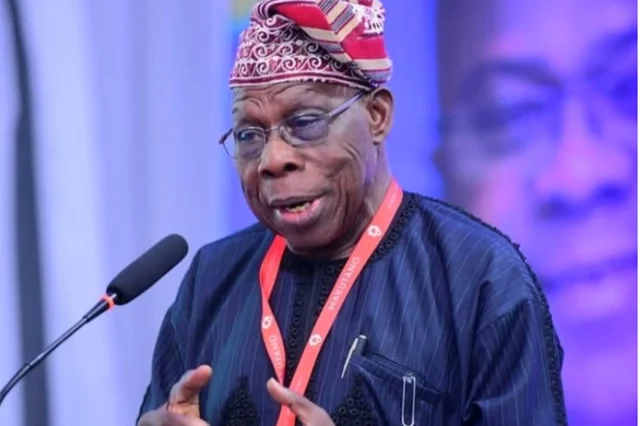Former President Olusegun Obasanjo said on Friday that in the early days of the Boko Haram insurgency in the North-East, the terrorist group’s founders told him that poverty and unemployment drove them into crime.
He did, however, warn that the country’s over 20 million out-of-school children would be a breeding ground for more ‘Boko Haram members of the future’ if not addressed immediately.
Read Also EFCC detains AMCON manager over N120bn fraud in Arik Air
He made these remarks at the launch of his daughter, Dr Kofo Obasanjo-Blackshire’s, book, ‘Pillars of Statecraft: Nation-building in a Changing World,’ at an event in Lagos.
In response to an audience member’s question about why government policies have become more political than people-centered in recent years, he stated that one of the country’s major problems is the search for scapegoats for its problems.
Read Also Russia Ukraine War Live update for today Saturday June 17, 2023
“During the early days of Boko Haram, when the man who started the movement was said to have been killed, I said I wanted to meet with the members of the group to talk to them and find out what they wanted,” he added.
“I met with their representatives and discovered that all they wanted was a better life for themselves.” Can we blame them for wishing for a better life?
Pay attention to Football fixtures today, Saturday, June 17, 2023
“They claimed to believe in Sharia Law. I assured them that Sharia law was not an issue in Nigeria. It is written into our constitution.”
According to the former president, some insurgents told him that they went to school but did not have jobs.
“Do we blame them if they don’t have jobs after four years?” he continued. Aren’t they entitled to a living? This comes down to one of the P’s of nation-building: politics, which is concerned with governance and leadership.
Read Also DSS Secures Court Order to Detain Godwin Emefiele and Abdulrasheed Bawa
“If that (leadership) isn’t taken care of properly, everything else will go haywire,” he said.
He also stated that Nigerians must learn to confront their own problems rather than blaming others for them.
“We must ask ourselves, ‘What do we do with our people?'” he said. How do we bring them up and value them? ‘How do we regard them?’
“We have over 20 million children who are not in school.” Google how many countries have fewer than 20 million people. That doesn’t concern us? Do you believe there will be no Boko Haram tomorrow?
“Those are the pillars of your Boko Haram of tomorrow.” That should be our primary concern. It should not be called externally induced. Is poverty also caused by outside factors? Poverty is the deliberate or unintentional choice of our leaders. It would be no if we said no. It would be yes if we said yes.”
During the panel discussion, Obasanjo emphasised what he called “The Five P’s of Nation-Building,” which he defined as “population, prosperity, protection, politics, and partnerships.”
In response to Kofo’s introduction of the sixth P – prayer and pleasing God – and whether Nigeria had fallen into a failed, failing, or weak state, he stated, “I take the condition of our states now as work-in-progress.” We cannot act until we have completed the work of statehood.
Speaking of a conversation he had with a former World Bank President when he was Nigeria’s Military Head of State, Obasanjo stated that the West was aware of Nigeria’s weaknesses and that when leaders show them the weakness, it is exploited.
“Every state has a level of fragility,” he added. Even America is not perfect. I used to tell my American friends that God gave them Trump to demonstrate that they, too, are humans, and that we are, more or less, the same.”
He went on to say that for Nigeria’s democracy to work, the country must learn to manage its diversity, and that all other forms of government, such as autocracy, plutocracy, gerontocracy, and so on, do not work for long.
Kofo stated in her remark that she started the course on the advice of her father during a trip in 2017 after expressing a desire to help others.
“As a young adult, I was incensed by the injustice and persistent corruption I witnessed in Nigeria,” she said. “The disparity between the nation’s resources and the average Nigerian’s living standards brought me to my feet in outrage and frustration during conversations,” she said.









